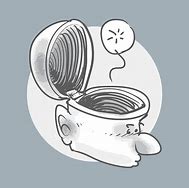
Popular Singles and EPs by Baby Syko
Sean bienvenidos a Belleza sin Misterios, un blog creado con mucho amor y dedicación. Aqui encontrarás respuestas a muchas preguntas que se refieren al maravilloso y innovador mundo de la belleza y estética.
Si, lo sé… la busca por belleza es un tema muy discutido. Muchos la buscan desesperadamente. Llegan a tal punto que se desconectan de sí mismos y por eso, otros la recriminan por creer que esa busca lleva el ser humano a olvidarse de su esencia interior.
Creo que como todo en la vida es necesario tener equilibrio. Soy una defensora de que cuidarse y amarse no es malo, ni tampoco equivocado. Estoy aqui para ayudarte y darte herramientas que le ayudarán a elegir los mejores productos y servicios con conocimiento e responsabilidad ética. Conocerás los principios ativos de sus cosméticos favoritos, los aparatos de electroterapias, cómo elegir el mejor producto para su tipo de piel y cabello, entre muchas otras cosas!
Ese proyecto lo traigo desde mucho en mi mente, desde las sillas del curso de Estetica y Cosmetogía de la universidad UNIVALI en Brasil, donde me gradué en 2014. Pensaba que muchas de las informaciones que aprendí en el curso podrían ayudar a los consumidores, aquellos que compram productos y servicios de belleza y estética. Siempre he sido una amante del conocimiento🤓, creo que eso nos liberta y nos proteje de las falsas promesas de resultados que muchas veces no son verdaderos para su necesidad.
Voy ayudarlos a entender el mundo de los cosméticos y tratamientos estéticos incluyendo maquillaje, facial, corporal y productos pra los cabellos. A cada semana tendremos un tema diferente para compartir! Dejen sus preguntas y con gusto les responderé.
Querer estar bonita y mejorar su apariencia y, consequentemente, mejorar sua auto estima es muy válido! Nuestro cuerpo es nuestra casa! No hay NADA de malo en cuidarlo, pero siempre con equilibrio de cuerpo, mente y alma🧘🏽♀️. Los tres son importantes!
La belleza está en los ojos de quien la mira. Miren-se con amor, cuidem-se, vivan plenamente.
Laziness and apathy as a sin
Sloth is one of the seven deadly sins in Catholic teachings. It is the most difficult sin to define and credit as sin, since it refers to an assortment of ideas, dating from antiquity and including mental, spiritual, pathological, and conditional states.[1] One definition is a habitual disinclination to exertion, or laziness.[2][better source needed] Views concerning the virtue of work to support society and further God's plan suggest that through inactivity, one invites sin: "For Satan finds some mischief still for idle hands to do." ("Against Idleness and Mischief" by Isaac Watts).
The word "sloth" is a translation of the Latin term acedia (Middle English, acciditties) and means "without care". Spiritually, acedia first referred to an affliction to women, religious persons, wherein they became indifferent to their duties and obligations to God. Mentally, acedia has a number of distinctive components of which the most important is affectlessness, a lack of any feeling about self or others, a mind-state that gives rise to boredom, rancor, apathy, and a passive, inert, or sluggish mentation. Physically, acedia is fundamentally a cessation of motion and an indifference to work; it finds expression in [sloth can also be referred as Laziness], idleness, and indolence.[1] Two commentators consider the most accurate translation of acedia to be "self-pity", for it "conveys both the melancholy of the condition and self-centeredness upon which it is founded."[3]
In his Summa Theologica, Saint Thomas Aquinas defined sloth as "sorrow about spiritual good" and as "facetiousness of the mind which neglects to being good... [it] is evil in its effect, if it so oppresses men as to draw him away entirely from good deeds."[4] According to the Catechism of the Catholic Church, "acedia or sloth goes so far as to refuse joy from God and is repelled by goodness".[5]
Sloth ignores the seven gifts of grace given by the Holy Ghost (wisdom, understanding, counsel, knowledge, piety, fortitude, and fear of the Lord); such disregard slows spiritual progress towards life—to neglect manifold duties of charity towards the neighbour, and animosity towards God.[6]
Unlike the other capital sins, sloth is a sin of omission, being a lack of desire and/or performance. It may arise from any of the other capital vices; for example, a son may omit his duty to his father through anger. Henry Edward Manning argued that while the state and habit of sloth is a mortal sin, the habit of the soul tending towards the last mortal state of sloth is not mortal in and of itself except under certain circumstances.[6]
Italian poet Dante Alighieri contemplates the nature of sloth as a capital vice in Canto 18 of Purgatorio, the second canticle of the Divine Comedy. Dante encounters the slothful on the fourth terrace of Mount Purgatory, where his guide, the Roman poet Virgil, explains that sloth can be seen as the effect of an insufficient amount of love.[7] Following the logics of contrapasso, the slothful work to purge themselves of their vice through continuous running.[8]
In the Philokalia, the word dejection is used instead of sloth, for the person who falls into dejection will lose interest in life.
Sloth has also been defined as a failure to do things that one should do, though the understanding of the sin in antiquity was that this laziness or lack of work was simply a symptom of the vice of apathy or indifference, particularly an apathy or boredom with God.[9][better source needed] Concurrently, this apathy can be seen as an inadequate amount of love.[7]
Emotionally and cognitively, the evil of acedia finds expression in a lack of any feeling for the world, for the people in it, or for the self. Acedia takes form as an alienation of the sentient self first from the world and then from itself. Although the most profound versions of this condition are found in a withdrawal from all forms of participation in or care for others or oneself, a lesser but more noisome element was also noted by theologians. From tristitia, asserted Gregory the Great, "there arise malice, rancour, cowardice, [and] despair..." Geoffrey Chaucer, too, dealt with this attribute of acedia, counting the characteristics of the sin to include despair, somnolence, idleness, tardiness, negligence, indolence, and wrawnesse, the last variously translated as "anger" or better as "peevishness". For Chaucer, human's sin consists of languishing and holding back, refusing to undertake works of goodness because, he/she tells him/her self, the circumstances surrounding the establishment of good are too grievous and too difficult to suffer. Acedia in Chaucer's view is thus the enemy of every source and motive for work.[10]
Sloth not only subverts the livelihood of the body, taking no care for its day-to-day provisions but also slows down the mind, halting its attention to matters of great importance. Sloth hinders man in his righteous undertakings and becomes a path to ruin.[10]
According to Peter Binsfeld's Binsfeld's Classification of Demons, Belphegor is the chief demon of the sin Sloth.[11]
Christian author and Clinical Psychologist Dr. William Backus has pointed out the similarities between sloth and depression. "Depression involves aversion to effort, and the moral danger of sloth lies in this characteristic. The work involved in exercising one's will to make moral and spiritual decisions seems particularly undesirable and demanding. Thus the slothful person drifts along in habits of sin, convinced that he has no willpower and aided in this claim by those who persist in seeking only biological and environmental causes and medical remedies for sloth."[12]
Wikimedia Commons has media related to
in Wiktionary, the free dictionary.
© 2019 Sin Markas Musik
℗ 2019 Sin Markas Musik
Offenbar hast du diese Funktion zu schnell genutzt. Du wurdest vorübergehend von der Nutzung dieser Funktion blockiert.
Wenn dies deiner Meinung nach nicht gegen unsere Gemeinschaftsstandards verstößt,
Payment Processing...
Payment is being processed by . Please wait while the order is being comfirmed.























